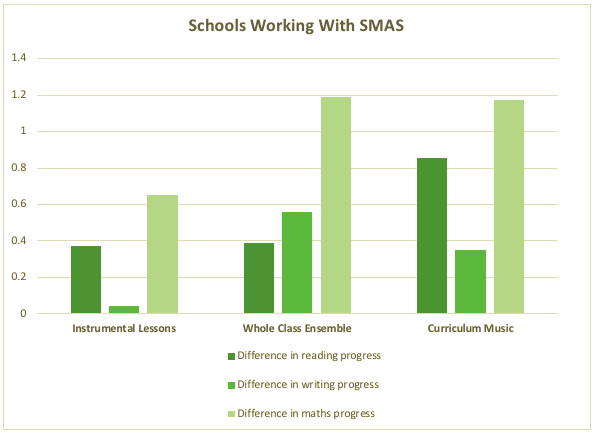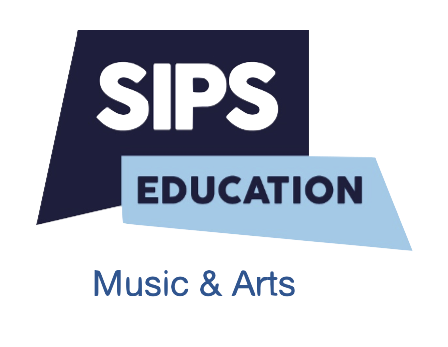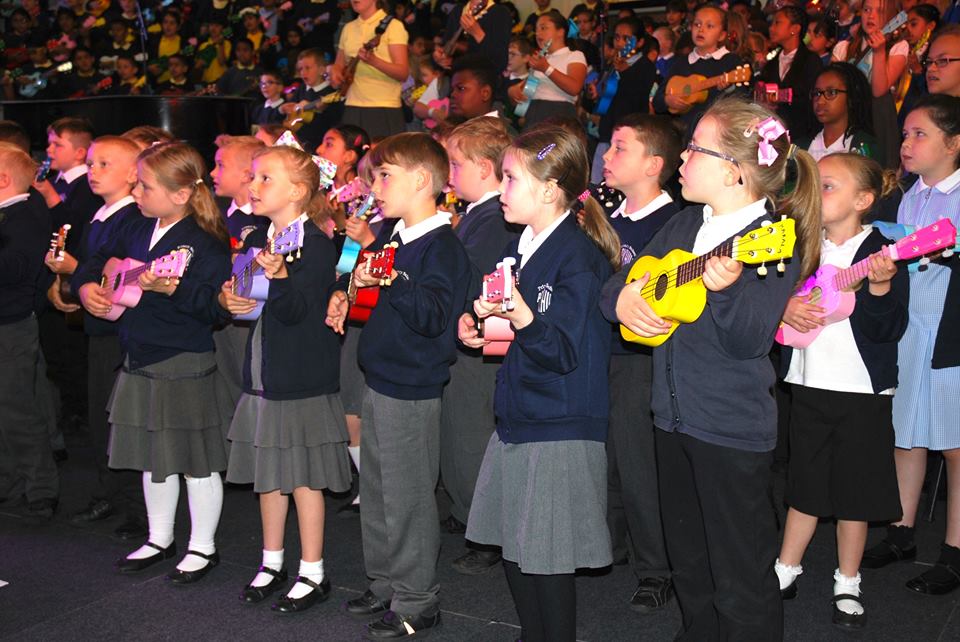Is there a link between Music and Pupil Progress..?
Introduction
As an established and trusted service, SIPS Education – Music & Arts Service (SMAS) are privileged to be working in so many schools across Sandwell. There is no doubt that schools highly value our music provision and that what we provide contributes in an important way to providing both a broad and balanced curriculum along with highly enjoyable and beneficial extra-curricular and progression opportunities for pupils.
There is, however, a worrying, albeit understandable, trend developing of schools considering whether they should cut back on music provision in order to make budget savings. We recognise that school budgets are under pressure as never before, alongside the pressure to demonstrate ever increasing improvements against pupil progress measures focused only on core curriculum subjects. Unfortunately, we sometimes find ourselves in conversations with school leaders having to make difficult choices around their budgets and the music provision that they want to maintain or grow, and that pupils gain so much from.
We know that schools are having to justify every aspect of their expenditure alongside being held accountable for pupil progress so, having done some research, we would like to provide some important information which we feel demonstrates clear links between involvement with our music provision and pupil’s progress.
We are grateful to Herefordshire Music Service (Encore Enterprises) for inspiring us to use this approach, and to Matt Nicholls in our team who put in the work to find all the data that was needed.
What did we look at?
We examined the 2016-17 pupil progress measures from end of KS1 to end of KS2, for every Sandwell school, in reading, writing and maths. We were able to compare the progress made by pupils in schools who work with SMAS, against those schools who were not working with us. We used the average pupil progress measures for both sets of schools in reading, writing and maths in order to see if there was any connection between working with a school’s music provision and their pupil’s progress in the core curriculum areas.
What did we find?
We have found clear and compelling evidence of a strong correlation between SMAS music provision and pupil progress is all three areas of reading, writing and maths. Furthermore, we are able to show how this correlation exists against our three main areas of provision – instrumental lessons, whole class ensemble tuition and curriculum music teaching. The results are summarised as follows:


Reading – schools without SMAS music provision showed noticeably lower average progress measures in reading.

Writing – both sets of Sandwell schools showed progress in writing, but those with SMAS music provision demonstrate higher levels of progress, on average, and particularly in schools with our whole class ensemble tuition.

Maths – again, schools with SMAS music provision demonstrated higher rates of progress, to a significant degree, across all elements of our music provision.

Summary – how music makes a difference
We are pleased to be able to show these clear differences between schools who work with SMAS and those who don’t, and we believe that this represents a demonstrable correlation between engagement in high quality music provision and pupil progress in reading, writing and maths from KS1 to the end of KS2. For schools working with us, the difference is clear:

You may have also read a national article about the success of a Bradford primary school, Feversham Primary Academy, in achieving a complete turnaround of their SATs results and OFSTED grading, which they attribute to increasing the amount of music taking place in their school:
In 2011, the school was 3.2 percentage points behind the national average in English. This year 74% of its pupils achieved the expected standard in reading, writing and maths, against a national average of 53%. It is 7.1 points above the average for reading and 3.4 above for writing. In maths, the school was 2.4 points behind the national average in 2011 and is now 6.5 above it. Its results for disadvantaged pupils are well above average.
The full article about this school can be found by following this link: “How to improve the school results: not extra maths but music, loads of it!”
We hope that this information will be useful to parents interested in music education and to headteachers, school leaders and governing bodies in helping them to make informed decisions around how best to provide for the music education of the children in their schools. We would be more than happy to discuss our findings with any school and provide further details of the benefits of each of the elements of our music provision.
John Thomson, Head of Service, SMAS

